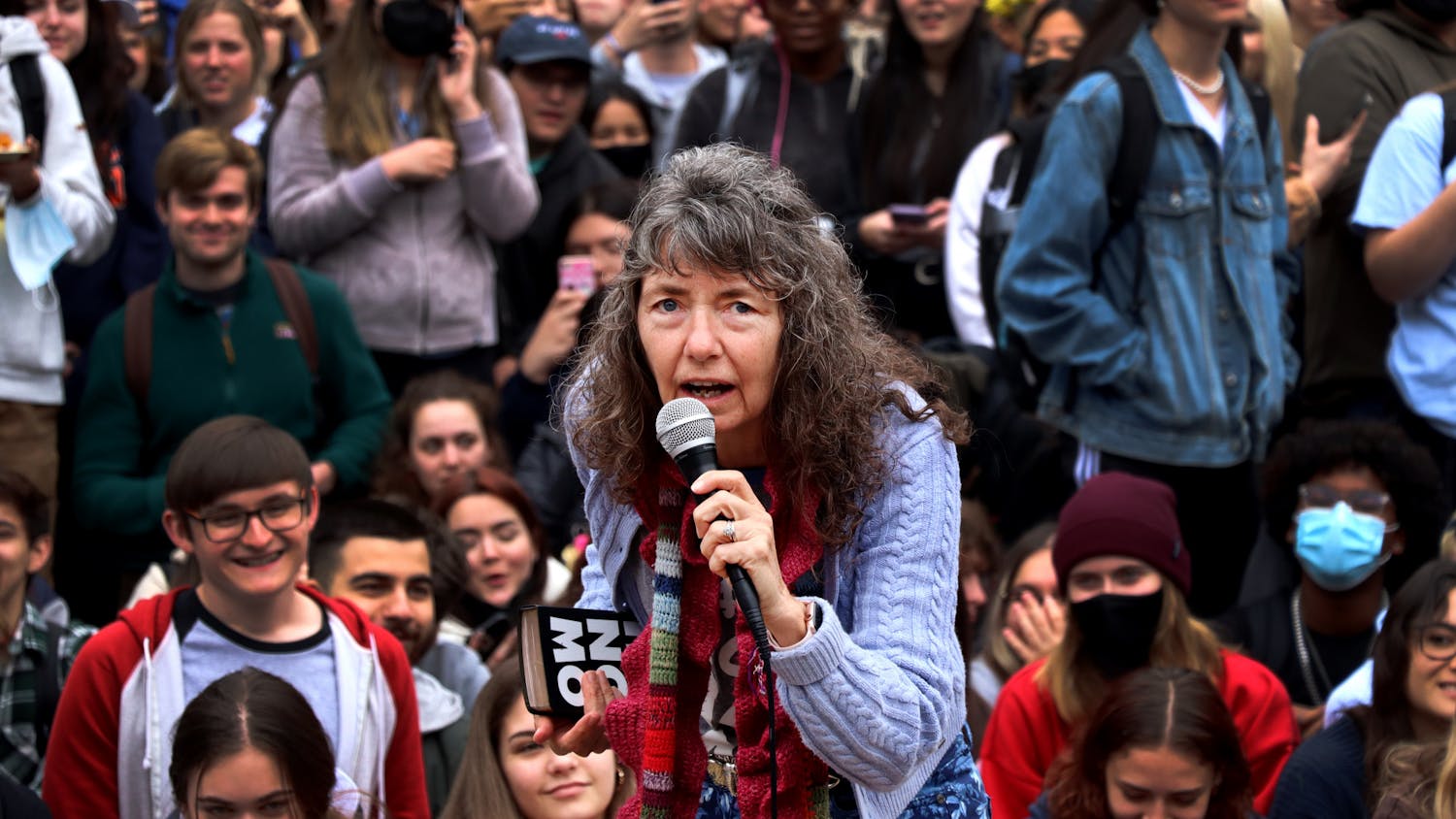Those of us who passed through the Plaza of the Americas last week observed one of the many peculiarities of college life. A cinder-block wall had been erected, each brick painted with negative terms such as "Jesus freak" "useless" and "terrorist."
The project, dubbed "Writing on the Wall" is an annual exercise meant to raise awareness of hurtful phrases and increase mutual respect. This project serves as a constant reminder of the importance of ritual in the human experience.
When I saw the wall for the first time, marveling at the flagrant profanities scrawled on it, I could only shrug my shoulders and walk on. My time in academia has made me accustomed to feeling like a pilgrim in a strange world. However, when I learned that the wall was meant to be torn down in a ritualized ceremony, it made perfect sense.
The university campus is, in a sense, the climax of the modern age. Since the Enlightenment, the Western world has been pining to throw the yoke of old and stodgy traditions off its back. We have embraced reason and logic and rejected the overly pious religiosity of the medieval period.
Sure, there are some backward holdovers — the right-wing fundamentalists, the street preachers and the Luddites — but they represent a small niche on campus, and we all attend class in an environment where Robespierre would feel right at home.
However, we still have our rituals.
We no longer light incense or pray to the Virgin Mary — we're much too clever for that. We do something much more sensible (or so we think) — we build walls just to tear them down.
These rituals are a constant reminder that humans have always had mechanisms to cope with inner depravity. Our ancestors would pray and fast, yet as they moved into the age of reason such things began to appear quaint and illogical.
However, the deep need for ritual still overcomes us.
The "Writing on the Wall" project is a perfect example of this. These practices are often meant to raise "awareness" of a societal blight - in this case, intolerance and incivility. One is forced to wonder whether lack of awareness of such things is truly the problem.
Do we slander and curse each other because we are unaware that such things are harmful, or do we do so because we have no fear of a deep and binding code of morality?
No matter what theory to which one ascribes, both are expressed through the aforementioned custom of ritual.
I was fortunate enough to pass through the Plaza of the Americas when the painted wall came crashing down. A large crowd had gathered, and a charismatic figure was holding a megaphone.
"Four," he began, and the crowd shouted in unison, "three, two, one!" The ropes were pulled, the wall creaked and the cinder blocks, marred with their obscenities, came crashing down in a pile of rubble.
The crowd shared in a cathartic release in the wake of the spectacle. Is it not odd that in the supposed age of reason, we still put so much value in these ritualized machinations that serve no purpose other than to remind us of what we value?
Pulling down a painted wall will not salvage our culture's civility, yet we believe it can, because even the most secular among us are still religious by nature. No matter how many gods are forgotten, all of us still believe in the cleansing power of a communal ritual.
Luke Bailey is a history junior at UF. His column appears on Wednesdays.





